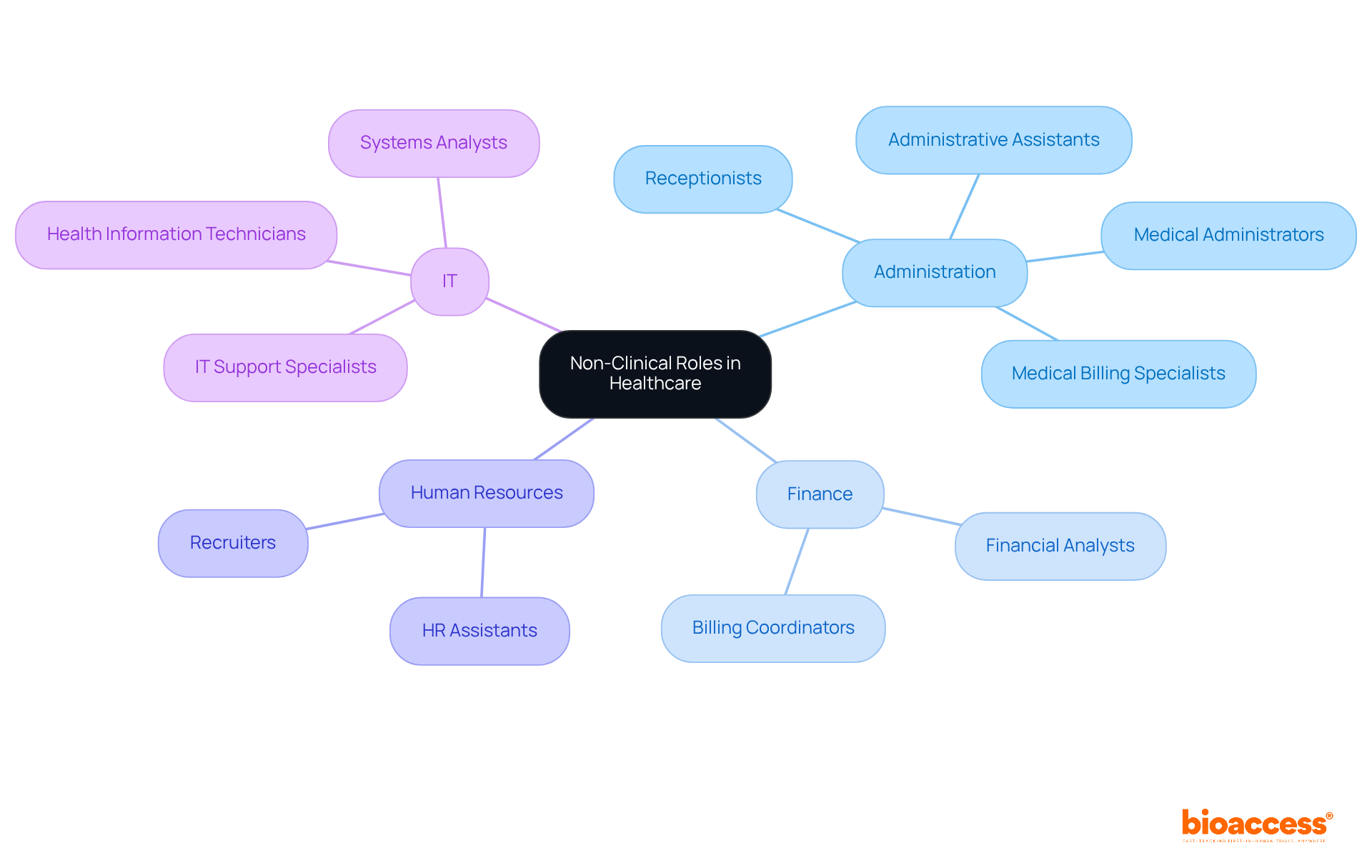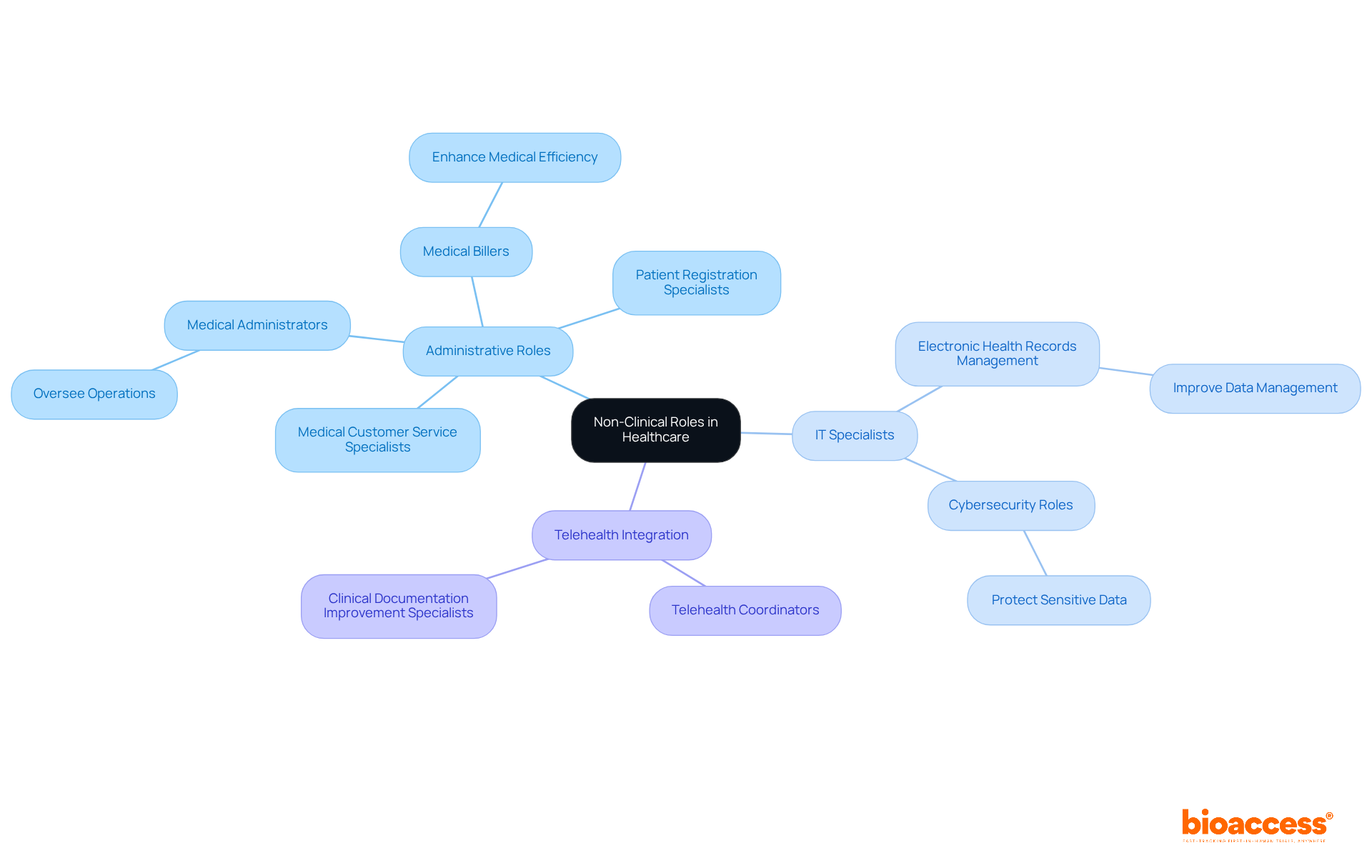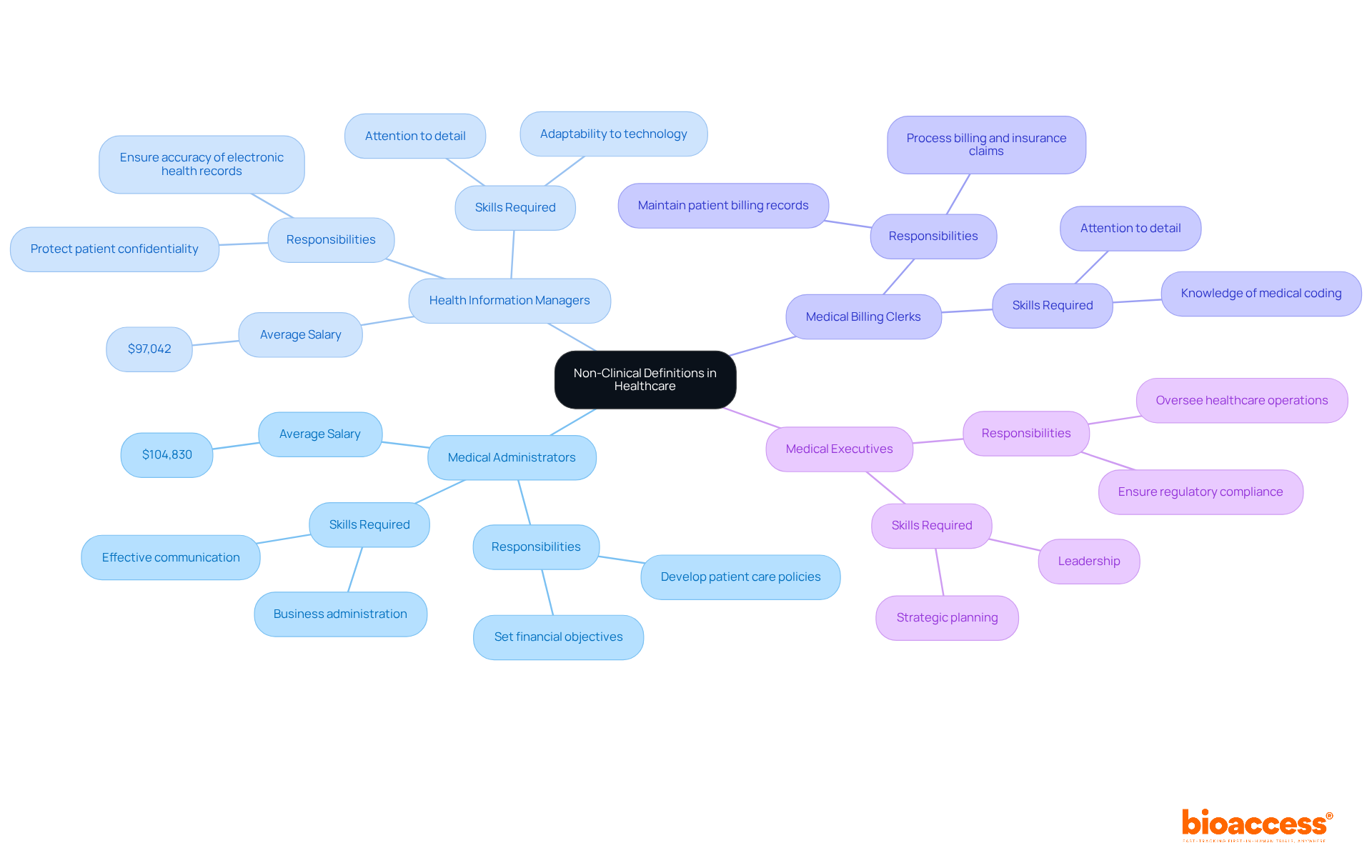


The article defines non-clinical roles in healthcare as essential positions that do not involve direct patient care but are crucial for the operational efficiency of medical systems. These roles, which encompass functions like administration, finance, and IT, enable clinical staff to focus on patient care. The growing demand for such positions is underscored by projected job growth statistics and the increasing complexity of healthcare operations, highlighting their significance in the contemporary healthcare landscape.
In the intricate web of healthcare, non-clinical roles operate behind the scenes, yet their influence is profound. These positions, encompassing everything from administration to IT, are essential for the seamless functioning of medical facilities. They enable clinical staff to focus on their core mission—caring for patients. As the demand for these vital roles continues to surge, driven by evolving healthcare needs and technological advancements, we must consider: how do these non-clinical professionals shape the future of patient care and operational efficiency in the medical field?
The non-clinical definition of positions in the medical field encompasses roles that do not involve direct care, diagnosis, or treatment; however, they are vital for the operational efficiency of medical systems. These roles span various functions, including administration, finance, human resources, and IT, all of which underpin the medical infrastructure. By managing essential tasks such as medical billing, data analysis, and medical administration, non-clinical professionals empower clinical staff to concentrate on patient care.
For instance, medical billing specialists ensure accurate billing procedures, while medical administrators optimize operations, significantly enhancing the overall functionality of medical organizations. The impact of these positions is evident in case studies where effective administrative support has led to improved patient outcomes and streamlined operational workflows.
As medical systems continue to evolve, the importance of administrative roles becomes increasingly apparent, underscoring their critical contribution to the medical landscape. According to the U.S. Bureau of Labor Statistics, the medical sector is projected to generate 1.9 million positions annually from 2023 to 2033, highlighting the growing demand for support roles. This includes diverse positions such as HR assistants and IT specialists, further illustrating the range of career paths available within the non-clinical definition of the domain.
The case study titled 'Common Non-Clinical Roles in Healthcare' reinforces the argument regarding the significance of these positions, demonstrating how they provide essential support to medical operations. Additionally, insights from industry professionals, such as Holly McDonald, emphasize the camaraderie and passion among medical workers, adding a personal perspective to the discussion.
Overall, the non-clinical definition highlights the crucial role of non-clinical positions in transforming the medical field and ensuring that clinical personnel can deliver the highest quality of care to individuals.

In the evolving medical landscape, the non-clinical definition of roles highlights their indispensable nature, particularly as the industry strives for enhanced efficiency and quality care. These roles ensure the seamless operation of medical facilities, enabling clinical personnel to focus on their interactions with individuals receiving care.
For example:
The rise of telehealth and digital health solutions has further underscored the significance of auxiliary positions, as these professionals play a vital role in integrating technology into patient care processes. As medical systems grapple with staffing shortages and escalating operational costs, the contributions of support professionals become increasingly critical in sustaining service quality and accessibility.
Research indicates a growing demand for administrative roles, such as medical billers and coders, underscoring their importance in enhancing medical efficiency. Moreover, the expansion of telemedicine has created new opportunities for professionals to elevate the quality of care through a non-clinical definition, ensuring that service delivery remains both efficient and responsive to individual needs.

Key features of non clinical definition positions emphasize administrative, operational, and support functions rather than direct care for individuals. These roles demand specialized skills and knowledge in areas such as medical management, finance, and information technology. For instance, medical administrators, with an average base salary of $104,830, set financial objectives and develop patient care policies. Meanwhile, health information managers, earning an average salary of $97,042, ensure the precision and security of electronic health records. Furthermore, positions like medical billing clerks and medical executives illustrate the diverse duties and qualifications required in this field.
The demand for professionals, as defined by a non clinical definition, is on the rise, as medical organizations increasingly recognize their essential contributions to operational efficiency and regulatory compliance. Medical and health services managers are projected to experience a 29% job growth from 2023 to 2033, highlighting the growing need for skilled individuals in these positions. These roles encompass data analysis, quality assurance, and adherence to industry standards, which are crucial for ensuring high-quality patient care. As Andrew Blank noted, "The medical sector has some of the quickest expanding professions in the United States," underscoring the growth potential in roles beyond direct patient care. Moreover, nearly 50% of physicians would choose to work in a position outside of direct patient care if given the chance, reflecting the appeal of these roles among healthcare professionals. As the healthcare landscape evolves, the necessity for skilled individuals in non-clinical positions becomes increasingly evident, highlighting the non clinical definition of their role in effectively supporting both patients and clinical staff.

The exploration of non-clinical roles in healthcare underscores their vital importance in maintaining the operational integrity of medical systems. While these positions may not involve direct patient care, they are essential in ensuring that clinical staff can focus on delivering high-quality healthcare. The non-clinical definition encompasses a wide range of functions, from administration to IT, all of which play a significant role in enhancing the effectiveness and efficiency of healthcare delivery.
Key insights reveal that non-clinical professionals, such as medical administrators and billing specialists, not only support the day-to-day operations of healthcare facilities but also contribute to improved patient outcomes. Their expertise in areas like data management and operational oversight allows clinical teams to allocate more time and resources to patient care. As the healthcare landscape continues to evolve, the demand for these roles is projected to grow, reflecting their increasing significance in the industry.
Recognizing the importance of non-clinical roles is crucial for fostering a comprehensive understanding of healthcare systems. As the industry adapts to new challenges and opportunities, embracing the contributions of these professionals will be essential for achieving operational excellence and enhancing patient care. Engaging with the potential of non-clinical positions not only benefits healthcare organizations but also ensures that patient needs are met with the highest standards of care and support.
What does the term "non-clinical" refer to in the medical field?
Non-clinical refers to positions in the medical field that do not involve direct care, diagnosis, or treatment but are essential for the operational efficiency of medical systems.
What types of roles are considered non-clinical?
Non-clinical roles include functions such as administration, finance, human resources, and IT, which support the medical infrastructure.
How do non-clinical professionals contribute to patient care?
Non-clinical professionals manage essential tasks like medical billing, data analysis, and medical administration, allowing clinical staff to focus on patient care.
Can you give examples of specific non-clinical positions?
Examples of non-clinical positions include medical billing specialists and medical administrators.
What impact do non-clinical positions have on medical organizations?
Non-clinical positions enhance operational functionality, improve patient outcomes, and streamline workflows within medical organizations.
What is the projected job growth for non-clinical roles in the medical sector?
The U.S. Bureau of Labor Statistics projects that the medical sector will generate 1.9 million positions annually from 2023 to 2033, indicating a growing demand for support roles.
What is the significance of the case study titled 'Common Non-Clinical Roles in Healthcare'?
The case study reinforces the importance of non-clinical positions by demonstrating how they provide essential support to medical operations.
What insights do industry professionals provide about non-clinical roles?
Industry professionals, such as Holly McDonald, highlight the camaraderie and passion among medical workers, adding a personal perspective on the value of non-clinical roles.
Why are non-clinical roles becoming increasingly important in the medical landscape?
As medical systems evolve, the importance of administrative roles becomes more apparent, underscoring their critical contribution to ensuring clinical personnel can deliver high-quality care.